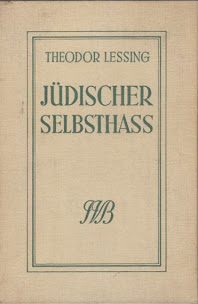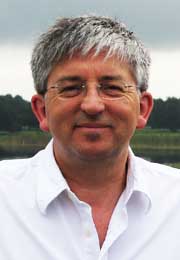Antisemitism is hostility to, prejudice towards, or discrimination against Jews. A person who holds such positions is called an antisemite. Antisemitism is considered to be a form of racism.

Zionism is a nationalist movement that espouses the establishment of, and support for a homeland for the Jewish people centered in the area roughly corresponding to the Land of Israel, the region of Palestine, Canaan, or the Holy Land, on the basis of a long Jewish connection and attachment to that land.

The World Council of Churches (WCC) is a worldwide Christian inter-church organization founded in 1948 to work for the cause of ecumenism. Its full members today include the Assyrian Church of the East, the Oriental Orthodox Churches, most jurisdictions of the Eastern Orthodox Church, the Old Catholic Church, the Lutheran Churches, the Anglican Communion, the Mennonite Churches, the Methodist Churches, the Moravian Church, Marthoma Syrian Church and the Reformed Churches, as well as the Baptist World Alliance and Pentecostal Churches. Notably, the Catholic Church is not a full member, although it sends delegates to meetings who have observer status. The WCC arose out of the ecumenical movement and has as its basis the following statement:
The World Council of Churches is a fellowship of churches which confess the Lord Jesus Christ as God and Savior according to the scriptures, and therefore seek to fulfill together their common calling to the glory of the one God: Father, Son and Holy Spirit.
It is a community of churches on the way to visible unity in one faith and one eucharistic fellowship, expressed in worship and in common life in Christ. It seeks to advance towards this unity, as Jesus prayed for his followers, "so that the world may believe".

A homeland for the Jewish people is an idea rooted in Jewish history, religion, and culture. The Jewish aspiration to return to Zion, generally associated with divine redemption, has suffused Jewish religious thought since the destruction of the First Temple and the Babylonian exile.
Soviet anti-Zionism is an antisemitic and pro-Arab doctrine promulgated in the Soviet Union during the Cold War. While the Soviet Union initially pursued a pro-Zionist policy after World War II due to its perception that the Jewish state would be socialist and pro-Soviet, its outlook on the Arab–Israeli conflict changed as Israel began to develop a close relationship with the United States and aligned itself with the Western Bloc. Anti-Israel Soviet propaganda intensified after Israel's sweeping victory in the 1967 Arab–Israeli War, and it was officially sponsored by the agitation and propaganda media of the Communist Party of the Soviet Union as well as by the KGB. Among other charges, it alleged that Zionism was a form of racism. The Soviets framed their anti-Zionist propaganda in the guise of a study of modern Zionism, dubbed Zionology. The Soviet anti-Israel policy included the regulated denial of permission for Jews in the Soviet Union to emigrate, primarily to Israel, but also to any other country.
Samuel Kobia, is a Methodist clergyman and the first African to be elected General Secretary (2004–2009) of the World Council of Churches (WCC), a worldwide fellowship of 349 global, regional and local churches representing a Christian population of over 590 million people. In 2010, Kobia was appointed Ecumenical Special Envoy to Sudan by the All Africa Conference of Churches (AACC). Kobia is married to Ruth, and they have two daughters, Kaburo and Nkatha, and two sons, Mwenda and Mutua.
New antisemitism is the idea that a new form of antisemitism has developed in the late 20th and early 21st centuries, tending to manifest itself as anti-Zionism and criticism of the Israeli government. The concept is included in some definitions of antisemitism, such as the Working Definition of Antisemitism and the 3D test of antisemitism.
Radio Islam was a Swedish Islamic radio channel, now a website. The EU's racism monitoring organization has called it "one of the most radical right-wing antisemitic homepages on the net".

Self-hating Jew or self-loathing Jew, both associated with auto-antisemitism, is a term which is used to describe Jews whose views are perceived as antisemitic. The concept gained widespread currency after Theodor Lessing's 1930 book Der jüdische Selbsthaß, which sought to explain a perceived inclination among Jewish intellectuals, toward inciting antisemitism, by stating their views about Judaism. The term is said to have become "something of a key term of opprobrium in and beyond Cold War-era debates about Zionism".

Stephen Robert Sizer is the former vicar of the Anglican parish of Christ Church, Virginia Water, in Surrey, England. Sizer is known for his opposition to Christian Zionism, which is the basis of his 2004 PhD thesis and the focus of his published works.
The 2001 World Conference against Racism (WCAR), also known as Durban I, was held at the Durban International Convention Centre in Durban, South Africa, under UN auspices, from 31 August to 8 September 2001.

Yisroel Dovid Weiss is an American Haredi Jew, activist, and spokesman for a minority branch of small fringe group Neturei Karta, a Haredi anti-Zionist group. Residing in Monsey, New York, he believes that Jews should peacefully oppose the existence of the Israeli state: "It would be forbidden for us to have a State, even if it would be in a land that is desolate and uninhabited." He represents fewer than 500 people, and Neturei Karta's views, are rejected by the majority of Orthodox Jews worldwide.
Anti-Zionism is the opposition to Zionism, the movement that sought and ultimately succeeded in establishing a Jewish state in the region of Palestine. Since the establishment of the State of Israel in 1948, anti-Zionism evolved into opposition to the state and its policies.
Antony Lerman is a British writer who specialises in the study of antisemitism, the Israeli–Palestinian conflict, multiculturalism, and the place of religion in society. From 2006 to early 2009, he was Director of the Institute for Jewish Policy Research, a think tank on issues affecting Jewish communities in Europe. From December 1999 to 2006, he was Chief Executive of the Hanadiv Charitable Foundation, renamed the Rothschild Foundation Europe in 2007. He is a founding member of the Jewish Forum for Justice and Human Rights, and a former editor of Patterns of Prejudice, a quarterly academic journal focusing on the sociology of race and ethnicity.
Racism in the Palestinian territories encompasses all forms and manifestations of racism experienced in the Palestinian Territories, of the West Bank, Gaza, and East Jerusalem, irrespective of the religion, colour, creed, or ethnic origin of the perpetrator and victim, or their citizenship, residency, or visitor status. It may refer to Jewish settler attitudes regarding Palestinians as well as Palestinian attitudes to Jews and the settlement enterprise undertaken in their name.

Criticism of the Israeli government, often referred to simply as criticism of Israel, is a subject of journalistic and scholarly commentary and research within the scope of international relations theory, expressed in terms of political science. Within the scope of global aspirations for a community of nations, Israel has faced international criticism since its declaration of independence in 1948 relating to a variety of topics, both historical and contemporary.
This timeline of anti-Zionism chronicles the history of anti-Zionism, including events in the history of anti-Zionist thought.
The history of the Jews in South Africa has been marked by periods of official and unofficial antisemitism.
Palestinianism is term occasionally used to denote the national political movement of the Palestinian people. It is a relatively recent coinage whose origins are disputed. It gained currency by its use in the works of Edward Said and to describe a certain vein of theology opposed to Christian Zionism. It is often dismissed as antisemitic by writers who claim it has immoral goals, or that challenges Zionism and the right of Israel to exist.

The Jerusalem Declaration on Antisemitism (JDA) is a document meant to outline the bounds of antisemitic speech and conduct, particularly with regard to Zionism, Israel and Palestine. Its creation was motivated by a desire to confront antisemitism and by objections to the IHRA Definition of Antisemitism, which critics have said stifles legitimate criticism of the Israeli government and curbs free speech. The drafting of the declaration was initiated in June 2020 under the auspices of the Van Leer Institute in Jerusalem by eight coordinators, most of whom were university professors. Upon its completion the declaration was signed by about 200 scholars in various fields and released in March 2021.







